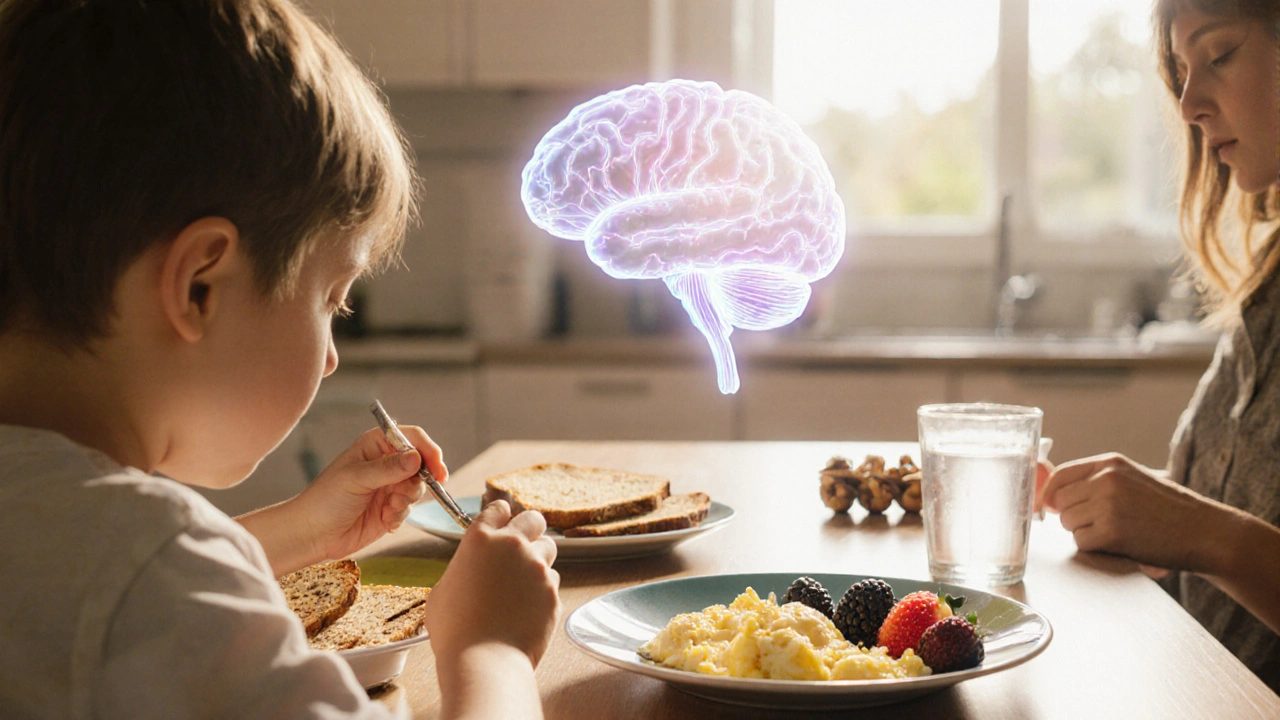Diet and ADHD
When working with diet and ADHD, the link between what you eat and how ADHD symptoms show up. Also known as ADHD nutrition, it helps people understand which meals can calm the mind and which can spark restlessness.
People with ADHD, a neurodevelopmental condition marked by inattention, hyperactivity, and impulsivity often ask whether changing their plate can change their focus. The answer is yes: ADHD responds to blood‑sugar swings, gut‑brain signals, and inflammation, all of which are driven by diet. By stabilizing these factors, many notice less jittery thoughts and smoother daily routines.
A balanced diet, the regular intake of nutrients that support brain and body function is the foundation. Complex carbs from whole grains, fiber‑rich vegetables, and lean proteins keep glucose steady, preventing the crash‑and‑boom cycle that fuels impulsivity. Meanwhile, healthy fats—especially omega‑3s from fatty fish, flaxseed, or walnuts—feed brain cell membranes and have been shown in several trials to improve attention scores.
Beyond the basics, specific nutrients act like tiny coaches for the ADHD brain. Zinc, iron, and magnesium support neurotransmitter production, while vitamin D influences mood regulation. Many families add a daily omega‑3 supplement, a zinc gluconate tablet, or a magnesium glycinate capsule to fill gaps that food alone might miss. It’s crucial to test levels first—unnecessary megadoses can cause side effects, so a simple blood test guides safe choices.
Putting It All Together
Putting these pieces into a daily plan doesn’t require a radical overhaul. Start with a protein‑rich breakfast (eggs or Greek yogurt), add a piece of fruit and a handful of nuts for steady energy, and pack a lunch that pairs whole‑grain wraps with leafy greens and lean turkey. Snack on carrot sticks or hummus instead of candy to avoid sugar spikes. diet and ADHD improvements often show up within weeks, especially when meals are consistent and caffeine is limited. Below you’ll find detailed guides, comparison tables, and safety tips that dive deeper into each food group, supplement option, and practical shopping strategy.
How Diet and Nutrition Affect ADHD Symptoms: Practical Guide
- DARREN LLOYD
- 12
Discover how specific foods, nutrients, and eating patterns can ease ADHD symptoms and boost focus with practical, evidence‑based tips.
READ MORE
